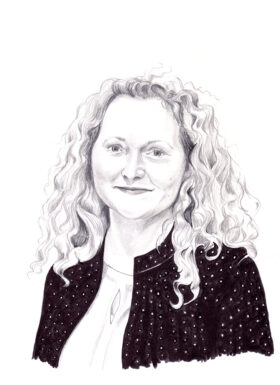-
Ammodo Science
Award for groundbreaking research2024 -
Ammodo Science Award
The Ammodo Science Award for groundbreaking research is intended to stimulate potentially groundbreaking research. Such research is usually the result of team work, and for that reason this Award is for research being carried out by a group of researchers working together, and is intended to recognise the contribution of every member of the group. The Award is presented every two years in four scientific domains: Biomedical Sciences, Humanities, Natural Sciences and Social Sciences.
-
Nomination & Selection
Each edition, the Ammodo Science Award for groundbreaking research includes a cash prize of 1,600,000 euros for each of the science domains Natural Sciences and Biomedical Sciences and a cash prize of 800,000 euros for each of the science domains Humanities and Social Sciences. The rectors of the fourteen Dutch universities affiliated to Universities of The Netherlands (UNL) may nominate a maximum of one research project per scientific domain.
-
Winners
The Ammodo Science Award for groundbreaking research focuses on potentially groundbreaking research and ensures that all researchers involved in the winning project are recognised and rewarded.
Tatiana Filatova
Laureate Social Sciences 2023

Tatiana Filatova (1981) studied Economics and Computer Science in Russia, where she graduated cum laude with a thesis on environmental economics and sustainability. In 2009, she obtained her PhD cum laude on Economics of Water Management from the University of Twente. During her PhD studies she conducted research on Computational Social Science at George Mason University in the US for over two years. Since 2019, she has been professor of Computational Economics at the University of Twente, and since 2021 at Delft University of Technology.
Filatova has led major interdisciplinary research programmes, such as DeSIRE, the inter-university strategic programme on resilient socio-technical systems. She is an alumna of the Social Science Council of KNAW and of The Young Academy. She has received several international awards and grants for her research, including NWO Veni and Vidi grants, and the ERC Starting Grant.
WebsiteResearch focus
Tatiana Filatova carries out research into the complex dynamics of socio-economic systems and climate change, seeking, among other things, to predict societies’ responses to different climate scenarios.
A climate-resilient society
As a result of increasing climate change, we are facing extreme weather such as heavy rain, heat or drought. For example, extreme rainfall in July 2021 led to flooding in Germany, Belgium and the Netherlands with huge social consequences. Climate research shows that such events will not remain incidents.
According to Tatiana Filatova, it is therefore very important to think about what happens when these kinds of extreme weather events become more frequent, focusing especially on the socio-economic aspects of climate policy. Where are the tipping points at which our society and economy can no longer withstand such climate shocks and must switch to a new climate adaptation strategy? How can people, businesses and governments adapt to a ‘new normal’? And above all: who benefits and loses the most from climate change and how should the losers receive support?
These are some of the complex issues Filatova deals with. A special feature of her research is the use of existing knowledge from the social sciences to enrich traditional climate models. Using computer simulations, she tests how individual climate choices of citizens and companies can lead to macro-level effects. In this way, Filatova can predict the responses of economies to different climate scenarios.
In particular her research shows that floods in the past, such as in the 1990s in southern Limburg, causing a fall in the prices of the houses that were vulnerable. Homeowners from climate-sensitive areas are therefore at risk of losing a great deal of money in the next few decades which is not something society is taking into account right now. Indeed, of the 1 million homes to be built in the Netherlands in the coming decades to combat the housing shortage, the majority will be in climate-sensitive areas.
However, Filatova not only studies the past, she also looks to the future. Her simulations show that poverty traps and ghettos may gradually emerge in climate-sensitive areas; and that mainly low-income people will live there, as they no longer have the financial ability to move to safer areas. What is groundbreaking about these results is that Filatova uses them to show that climate change leads to growing socio-economic inequality and gentrification.
A unique aspect of Filatova’s research is that she is studying whether cultural differences play a role in determining the extent of people’s willingness to adapt to climate change. She is therefore working on an open database for the drivers behind climate adaptation. For example, what strategies do farmers use to prepare for droughts? How do people react to flood risks in their own residential areas? And how do businesses decide to invest in measures to increase their climate resilience? By comparing survey data from various countries, Filatova aims to accelerate cross-cultural research on climate adaptation.
Ultimately, she hopes to predict which economic decisions lead to effective and equitable climate adaptation, taking into account the costs and benefits for future generations.